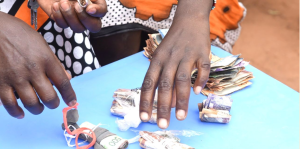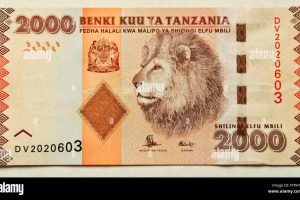
The Future of Microfinance Is Individual, Not Group-Based
By Francis Nyonzo.
The modern microfinance model, which uses group lending, was once considered a
panacea for poverty alleviation. The originator of the idea, Prof. Muhammad Yunus, received
the Nobel Prize for it. He was once quoted saying, “The only place where poverty should be
is in museums.” The Sustainable Development Goals aimed at ending poverty in all its forms
by 2030. We are now five years away from 2030, but people are still living in extreme
poverty.
For years, the celebrated Grameen Model has been used, and in the 1980s the government
also adopted it. This model, pioneered in Bangladesh by Muhammad Yunus, required poor
people to form groups in order to receive loans. Trust was used as collateral, since not all
members of a group could disappear from the village, and people knew whom they could
trust when forming groups. In other words, group members chose only those they trusted,
thereby reducing risk.
Challenges of the Group Lending Model
It should be noted that when the model was developed, technology was not as advanced as
it is now. People lived more informally, and it was difficult for outsiders to know the poor
better than they knew themselves. Without formal systems to identify the poor, they were
excluded from financial institutions. At that time, using trust as a form of collateral was truly a
genius innovation. But trust has faded, in simpler terms, there is now a trust crisis.
As a result, despite the presence of microfinance institutions, people continue to borrow from
individuals and private moneylenders, and this represents a significant portion of lending, as
shown in the book Poor Economics.

| Nation Media Group
Trust is guaranteed only when there is a group. The minimum number of members is usually
five. In Tanzania, Local Government Authorities provide 10% of their local revenues to young
people, women, and people with disabilities, using the same group-lending approach. The
problem is that while loans are meant to fund business ideas, the quality of the business
idea becomes secondary to group formation. Microfinance seems to operate on the
principle: “We will not take you out of poverty if you are alone, no matter how good or viable
your business idea is.”
This undermines voluntariness, which is key to human behavior. For the poor, joining a
group is no longer a voluntary choice. There is also a likelihood that groups receive money
even when their ideas are weak—or when they have no ideas at all.The fundamental problem with the group lending model is that it relies on trust between
group members. Many people turn to moneylenders who do not require groups, though they
charge exorbitant interest rates. This makes the problem worse, as we have seen how
borrowers often lose property to these lenders.
The Critical Solution
The real problem was that poor people lacked access to finance because they had no
property to use as collateral and no reliable way for lenders to verify their information.
Yunus’s solution was to provide access to finance by using groups as an informal way of
gathering genuine information about borrowers. In essence, the critical issue was: “How do
we know the poor person we are targeting?”
But today, in the digital age, information is already being collected by telecommunications
companies that provide mobile money services. Transaction histories are sufficient to assess
whether someone is likely to repay a loan. The key problem, identifying and evaluating the
poor borrower, can now be addressed digitally. Telecommunications companies already
have formal identification records for all mobile money users. This allows microfinance to
shift its focus from group membership to individual mobile money transaction histories.
It is therefore important to have a strong national identification system that ensures mobile
money users cannot escape repayment. Even if a customer switches service providers, their
transaction and debt history should follow their national ID number. In this way, microfinance
can focus on the viability of business ideas rather than on group membership. Groups would
then form voluntarily based not on loan requirements but on shared business interests, such
as pooling capital and resources.
Giving individuals the option to join or not join a group respects their freedom, while also
reducing the risk of borrowers turning to private moneylenders and relatives.
These are the writer’s own opinions and do not necessarily reflect the viewpoints of Liberty Sparks. Do you want to publish in this space? Contact our editors at [email protected] for further clarification.



Tanzania’s Economic Resilience: Can We Withstand Reduced EU Support?